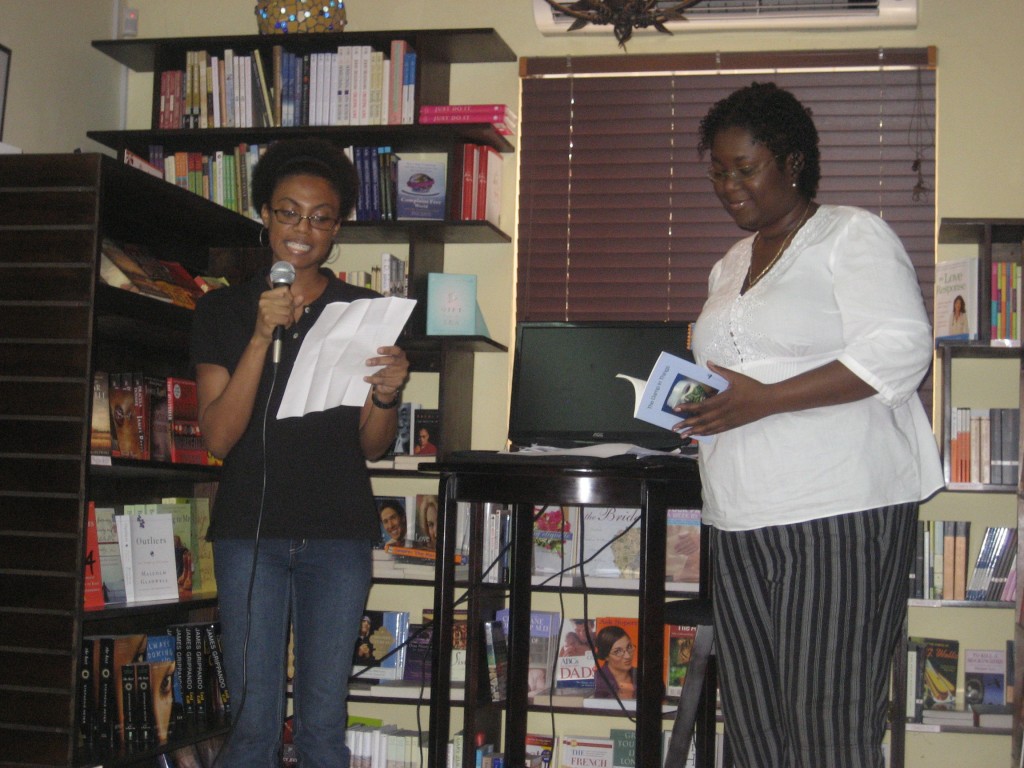YardEdge Talks to Jamaican Poet Millicent Graham

YardEdge’s guest blogger, Karen Hutchinson talks to Millicent Graham.
Confession time: the very first time I saw Millicent Graham I thought she was a flake. Why? It was the Calabash Literary Festival 2009, she was slated to read from her spanking new collection of poetry, The Damp in Things, and she couldn’t be found. It was clear someone had gotten their wires crossed when the Calabash organizers announced that Millicent Graham would be reading shortly and therefore needed to take her place. Turned out she was simply on the wrong side of the aisle. We in the audience had a little chuckle. Ahh, those poets. After I read her poetry though, I changed my mind.
YE: Why are you a poet?
MG: I don’t know why I am a poet. I know why I write, because I really love words.
YE: When did you start writing poetry?
MG: I started trying maybe 1988 or so, started calling it poetry around 1990, then tried to write poetry a few years later, but really started writing poetry about 2000. And I say that because that’s when I started to understand my obligation to the craft.
YE: How hard is it for you to work full time and write poetry full time? [Millicent is a Business Analyst at Jamaica Public Service Company.]
MG: I think I write poetry part time actually, I devote less time to it than I would like. It’s difficult, not just because I’d like to do more writing, but because one intrudes on the other… a sort of identity disorder. I am beginning to resent this world and all its demands. It has no patience for reading and writing. It pulls at you.
YE: What do you like the most about poetry writing?
MG: Is there one thing to like most? I like it all most times! From the uneasiness when the poem is about to reveal itself to you, to the sound or the poem, the flirtation of the first few definite lines or just the different ways that they each come to you. I love that in writing I describe a space I know, the way I know it, and no other’s rules can govern it.
YE: What do you like the least?
MG: Explaining it away – having to pulverize it into logic.
YE: Did you at any point wish to stop?
MG: That’s like blasphemy.
The poems in the collection can easily be described as exact. You feel reading them that she is aiming for a scalpel like precision that is hard to associate with a disorganized mind. She writes, “A dutchy pot lid lifts/and smells take air./As I glance, the smoke clutches/the expanse in its claw, where/a man measures the yard of his/apron strings.” When we met I asked her about the label of surrealist which has been assigned to her. She confessed that at some point she was not sure the tag fit but more and more she is convinced that it does. She writes in Cat, “You lie unshorn, busy in a dream’s twitch,/the fan rustling the strands that have turned/ginger in the sun.” and explained to me that it is only when you start to really delve into her work that you will understand exactly how she uses imagery. Thus when she writes of strands that have turned ginger in the poem, she is referring not necessarily to the colour ginger but to an actual piece of ginger. So an actual visual transformation that has taken place in the poem.
YE: How long have you been working towards this collection of poems?
MG: I was writing for some time, intended to do a manuscript one day but never started with the idea of a book. It just sort of emerged from years of effort. When the collection started coming together, there were sessions of writing and re-writing at various workshops. Most of the poems where written around 2002-2006
YE: Are you happy with it?
MG: A bit too happy I’m afraid, I’m waiting to become sensible. Just before the printing of it, I looked at the collection and couldn’t find one thing worth reading. It was all horrible compared to what I’m currently writing. Now post publishing, the opposite has happened: I adore them all and everything I write now can’t possibly be as good. I’m sure it’s a conceit! I’m waiting on the scales to lift from my eyes, to be balanced again.
We chatted too about one of the central symbols in her poetry, the damp. She told me that it took being pressed by her editor, Kwame Dawes, who wanted a title for the collection that would reflect the central idea, for her to realize what it was. At the core of the collection lies the idea of rebellion. Simply put, the poems represent and portray in many instances the courage to do the risky thing, to go against what is expected to satisfy an inner voice, to be able to live with no regrets.
My mother said, “Tie yuh shoes-lace,
Mind cloud-water pools, know only the dry.”
Not this ache for rain days.
Now, regret like ringworm
blue dye and young limes cannot heal;
these feet that restrained the heart
and kept me raw, far from the damp in things.
(From Rain Days)
YE: What form if any would you say dominates the collection?
MG: They are mostly lyric poems, loosely rhyming, syllabic verse, stanzas of four or so 5 lines it’s a very free form although sometimes when I pick up the book and just glance at it, it doesn’t give that impression.
YE: How would you ultimately describe the collection?
MG: Uneasy. It makes the familiar startling.
So Millicent isn’t clueless in Kingston. She is a young poet whose work has earned her the privilege of attending the University of Iowa’s highly esteemed Writer’s Workshop. She seemed hopeful, happy, just the tiniest bit unsure.
YE: What’s your favourite book?
MG: Of poetry? Keats and Elliot I can’t betray either of them.
YE: Favourite musical artist?
MG: There are so many! I’m into Beres, Coldplay, Vivaldi. I love the rock music scene in Jamaica.
YE: How do others describe you?
MG: In whispers.
YE: Apart from poetry where do you find comfort and restoration?
MG: I don’t find them, I’m often looking though!
YE: Neat or messy?
MG: Messy… life is not neat.
YE: What are you most afraid of?
MG: Being untrue.
YE: You are going to Iowa shortly. What does this mean to you?
MG: That’s another thing to be afraid of. I’m excited but representing one’s country… I have all sorts of great expectations and dread! I’m sometimes afraid of myself. Do people profit from receiving their hearts desire? Are they better off? Will it help or hurt my estimation of my work? Do I deserve it? I am a vat of questions. But all this is accompanied by a resounding sense of life being purposeful! Of being smiled on… I learn that gratefulness is a resource I am multiplying.
YE: What other milestones are you looking forward to?
MG: Next manuscript – making something of The Drawing Room Project, a series of script writing workshop that I’m working to bring about.
YE: What are you working on currently?
MG: A few ideas. I have another collection that I hope to finish by the end of the year, working title Love from Stone. And I’d like to do some research for others that are mostly conceptual right now.
It was a great exchange. In an interesting way I found Millicent’s poetry to be much older than Millicent herself seemed. Millicent sort of has the air of being in between. It’s in her openness and easy laugh. But there’s no doubt that she’s utterly serious about her craft.
Here’s wishing her all sorts of adventures in Iowa and the best of luck in keeping her feet and her heart damp.


3 Comments
Its really wonderful to be able to express yourself in words.I myself is aspiring to be a poet just the same and words are like my best friend!
First, I suggest that you read lots of poetry and decide what you like and then just give it a go!
I want to write poems. where do i go from here.
Iam 16 years old